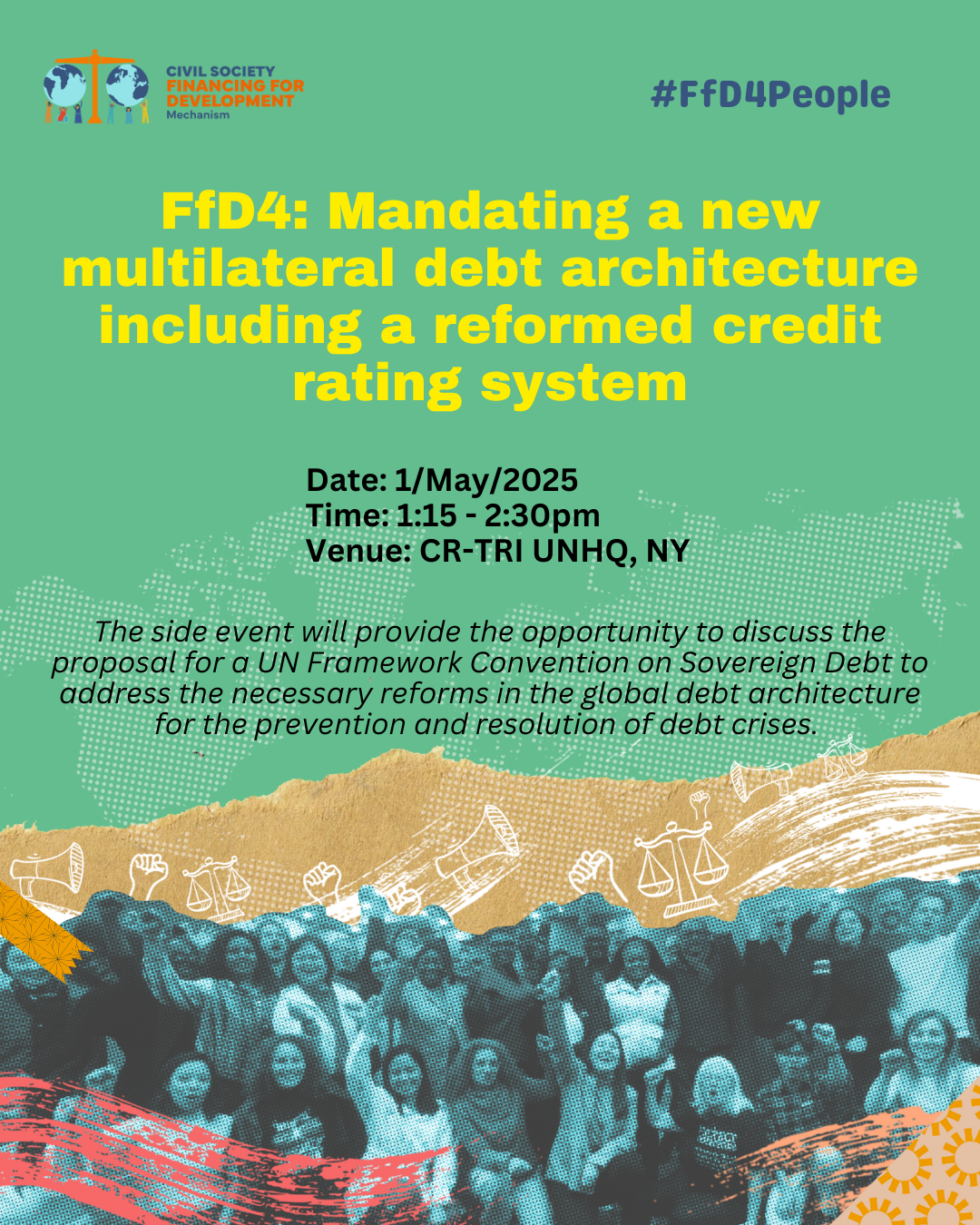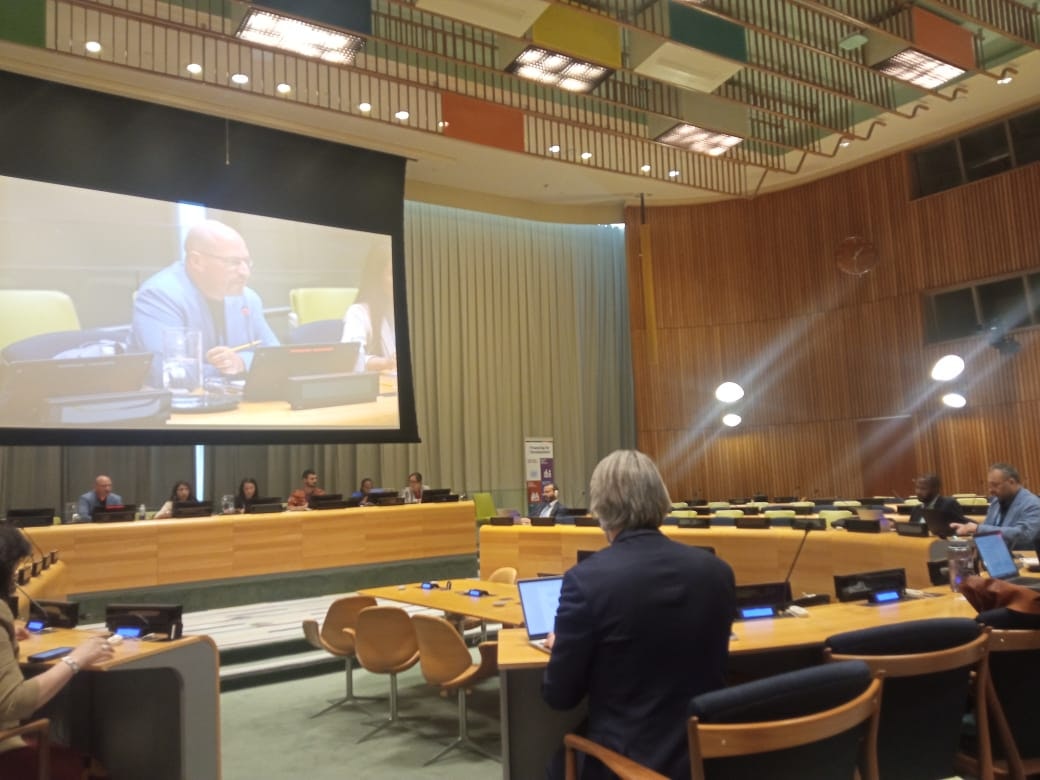FfD4: Mandating a new multilateral debt architecture including a reformed credit rating system
Date: May 1, 2025 Time: 1:15 - 2:30pm Venue: CR- TRI, UN Headquarters, NY

This side event focused on the proposal for a UN Framework Convention on Sovereign Debt, highlighting the urgent need for comprehensive reform of the global debt architecture to better prevent and resolve debt crises.
The discussion also linked debt reform to broader systemic issues, including the role of Credit Rating Agencies. Participants explored proposals for reforming these agencies and advocated for the creation of a public credit rating agency under the auspices of the United Nations.
From the perspective of countries in the Global South, speakers stressed that these reforms are not merely policy options but existential imperatives. The event included a focused assessment of the First Draft FFD4 Outcome Document and presented civil society’s recommendations for increasing its ambition in addressing these structural challenges.
Vital public financial resources are being allocated today to external debt repayments at the expense of domestic health, social, economic financing, and climate resilient needs. In Africa, more than half the continent is either in debt distress or at high risk of debt distress and is faced with still having to prioritise creditors than its people. The impact of a creditor centric debt architecture is to lock Africa’s transformation in a perpetual state of dependency. It is evident that current ad-hoc and creditor-centric international initiatives to address the debt resolution are insufficient and existing debt sustainability assessments inadequate, as they disregard human rights, SDGs, gender equality or climate investment needs. The United Nations, with the core mandate to address critical global issues, and the fact that it is neither debtor nor creditor itself, is the only inclusive multilateral and democratic space that has the legitimacy and competence to discuss and agree a multilateral legal framework to prevent, address sovereign debt crises and stop the vicious spiral of debt.
In this context, the 4th FfD Conference provides the unique opportunity for the UN to reclaim its role in addressing sovereign debt challenges, away from creditor dominated forums that have failed to establish mechanisms to prevent the accumulation of unsustainable and illegitimate debt and to resolve debt crises, bound to human-rights commitments, including peoples’ right to development and gender equality. A UN Framework Convention on sovereign debt, negotiated and agreed by all Member States, in an equitable, inclusive, participatory, accountable and transparent manner, should address the commitment to establish a multilateral debt resolution mechanism, but not be limited to it. The Debt Convention should also embody a global consensus on the necessary principles, rules and structures throughout the different interdependent stages of the debt cycle.
FfD4 will also provide the opportunity to complement a new debt architecture with a reform credit rating system. There is widespread agreement across both international institutions as well as Member States on the need to regulate CRAs. While this is a long-lasting issue, recent pandemic and debt crises have exposed the current dysfunctionalities as well as penalizing costs of borrowing when market access needs are most acute. From a developing country perspective, the dysfunctions include bias and pro-cyclicality in ratings, market concentration and dominant position, and conflicts of interest. Current debates are largely focused on soft interventions and voluntary measures on, often with the direct participation of those same market actors that need to be regulated. The UN should lead in the formulation and implementation of CRA supervision and regulation, including ESG rating bureaus, by convening a universal, intergovernmental commission under ECOSOC to examine urgently needed international institutional innovations required to correct and avert the adverse impacts of CRAs. The Commission should also further study proposals such as establishing an international public credit rating agency at the UN to provide more transparent and equitable assessments of creditworthiness.

